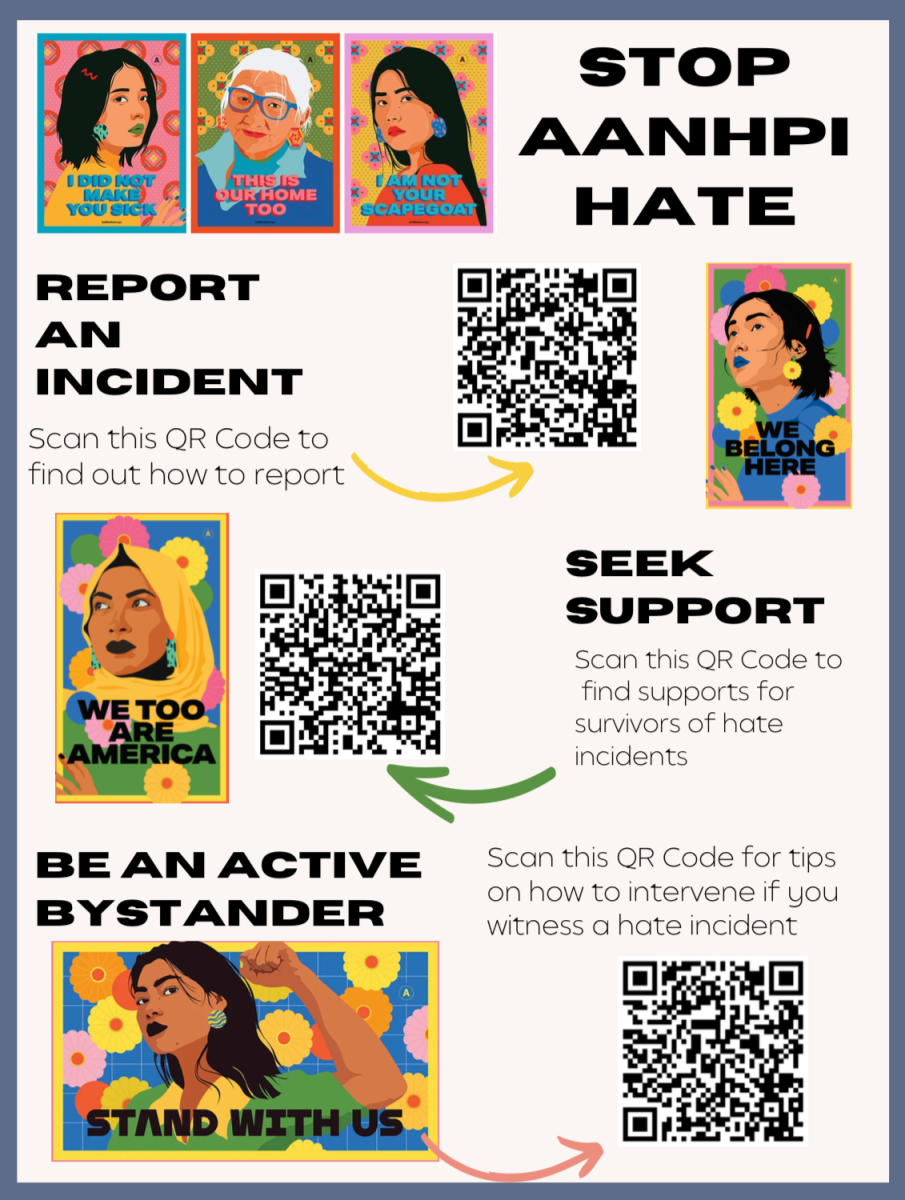
On the cloudy Thursday afternoon of Feb. 16, 2023, Franklin High School’s Principal Chris Frazier released an email regarding a racist interaction between an Asian identifying student and another student that took place on school grounds. The email stated that the incident consisted of the Asian identifying student “being hit on her arm, then as she questioned the students involved, several racial slurs and insults were targeted at her by another student.” The students involved were never disclosed for anonymity and safety reasons; this was an intricate situation that led to different emotional impacts on students, staff, and the whole community.
The Franklin administration attests that this hate incident is “an affront to [the school’s] core values of Racial Equity and Social Justice, Respect, Honesty and Integrity,” hence measures being enacted right away. The administration worked directly with the students and families involved and provided them with support and interventions. Additionally, Franklin staff members crafted materials that contain resources on what to do when hate incidents are witnessed or experienced. The resources also contain support for Asian American and Native Hawaiian/Pacific Islander (AANHPI) survivors and victims.
According to Public School Review, Franklin’s Asian student population makes up about 13% of the school’s racial demographics. In situations like this, Franklin Instructional Coach Yoshio Drescher preaches that, “Unless we advocate for ourselves and advocate for our students and advocate for our communities, [these incidents] are not going to get talked about.” He continues to add that this recent incident has shed light on just how great of a need there is for our school to raise awareness about these issues and the experiences of AANHPI students here at Franklin.
“We can’t just continue not talking about our students’ experiences, and it needs to be explicit and clear,” Drescher urges. This incident poses a threat to the safety of AANHPI identifying students. Asian American Association advisor Desi Wolff-Myren expresses her sentiments on the recent incident: “It makes me feel scared and sad … it’s mostly sad to me [since] Franklin should be a safe place for students to come. And when school is not a safe place that students can go to, it makes me wonder what we can do to make it a safe place again.” There are different responses from the community, whether it be sadness or anger, especially since the AANHPI community is often inadequately represented due to incidents like this receiving minimal coverage.
Drescher also adds that knowledge improvement of both students and staff should be on the forefront because incidents like these have been ignored for long enough. Thus Drescher, alongside English teacher Van Anh Bui and World Language teacher Mo Wang, are in the works of developing a new curriculum that’s mainly designed to raise awareness about recurring incidents of racism against AANHPI students and the community in general. “In the United States, anti-Asian violence has been here for a long, long time. It does appear that since the pandemic that it’s taking on maybe a different form, and it’s increasing in frequency, but you know, anti-Asian violence, and racism has deep roots,” Drescher adds. The new curriculum will also explore the origins and historical context of anti-Asian incidents like the infamous Chinese Exclusion Act. It was the first United States law that banned immigration solely based on race which was a result of white nativists spreading xenophobic propaganda about Chinese people.
The new curriculum was already made available to ninth grade communities in classes such as Physics, Algebra 1-2, English, Ninth Grade Inquiry, and AVID. It might be implemented on different timelines and is not mandated. It is a voluntary resource for staff to choose if, how, and when to use.
Although the curriculum is available to all staff, it is an ongoing process that teachers acknowledge needs refinement and improvement. Additionally, planning for Franklin Talks has started and the new Asian curriculum is definitely on the table for it. The ultimate goal of all of this work is for AANHPI perspectives to be part of regular and consistent classroom practices, versus something teachers include one time and never do again. Wolff-Myren emphasizes that raising awareness and taking actions shouldn’t just be a response to an emergency and injury.


































